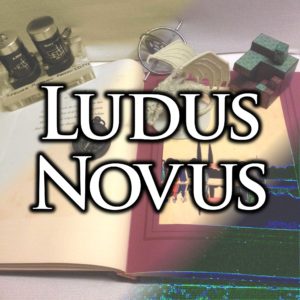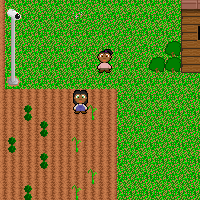
 What do people actually mean when they say “walking simulator?” Bernband by Tom van den Boogaart doesn’t even seem to have a goal. But then why do you keep playing it?
What do people actually mean when they say “walking simulator?” Bernband by Tom van den Boogaart doesn’t even seem to have a goal. But then why do you keep playing it?
Bernband: https://gamejolt.com/games/bernband/34864
Bernband Remake Twitter: https://twitter.com/bernband
Youtube (MP3 below):
Transcript: Transcript for this episode
If you like this episode, check out the other podcasts I’m involved in: Audacious Compassion and The Future Proof Podcast
The Ludus Novus podcast is supported by my patrons. To help, please visit my Patreon.
The theme music is “A Foolish Game (Vox Harmony Adds)” by Snowflake, Admiral Bob, and Sackjo22, available on ccMixter under a ccby3.0 license.
REFERENCES
Ashe, Pat. “Walking Simulator Simulator.” Feral Vector, 2014. https://soundcloud.com/thepatashe/walking-simulator-simulator (Transcript on The Pat Ashe, 6 July 2014. https://web.archive.org/web/20141007075156/http://thepatashe.wordpress.com/2014/07/06/walking-simulator-simulator/ )
Barlow, Sam. Her Story. 2015. http://www.herstorygame.com/
The Fullbright Company. Gone Home. 2013. https://gonehome.game/
Goodwin, Joel. “Screw Your Walking Simulators.” Electron Dance, 16 July 2014. http://www.electrondance.com/screw-your-walking-simulators/
Juul, Jesper. “Without a goal”. In Tanya Krzywinska and Barry Atkins (eds):Videogame/Player/Text. Manchester University Press, 2007.
http://www.jesperjuul.net/text/withoutagoal/
Key, Ed and David Kanaga. Proteus. 2013. http://twistedtreegames.com/proteus/
Koster, Raph. A Theory of Fun for Game Design. 2nd ed., O’Reilly Media, 2013.
Nygren, Nicklas. Knytt. 2006. https://web.archive.org/web/20170509070555/http://nifflas.ni2.se/?page=Knytt
Schell, Jesse. The Art of Game Design: A Book of Lenses. 2nd ed., CRC Press, 2015.
van den Boogaart, Tom. Bernband. https://gamejolt.com/games/bernband/34864
